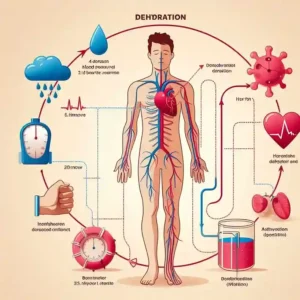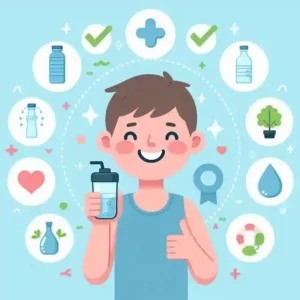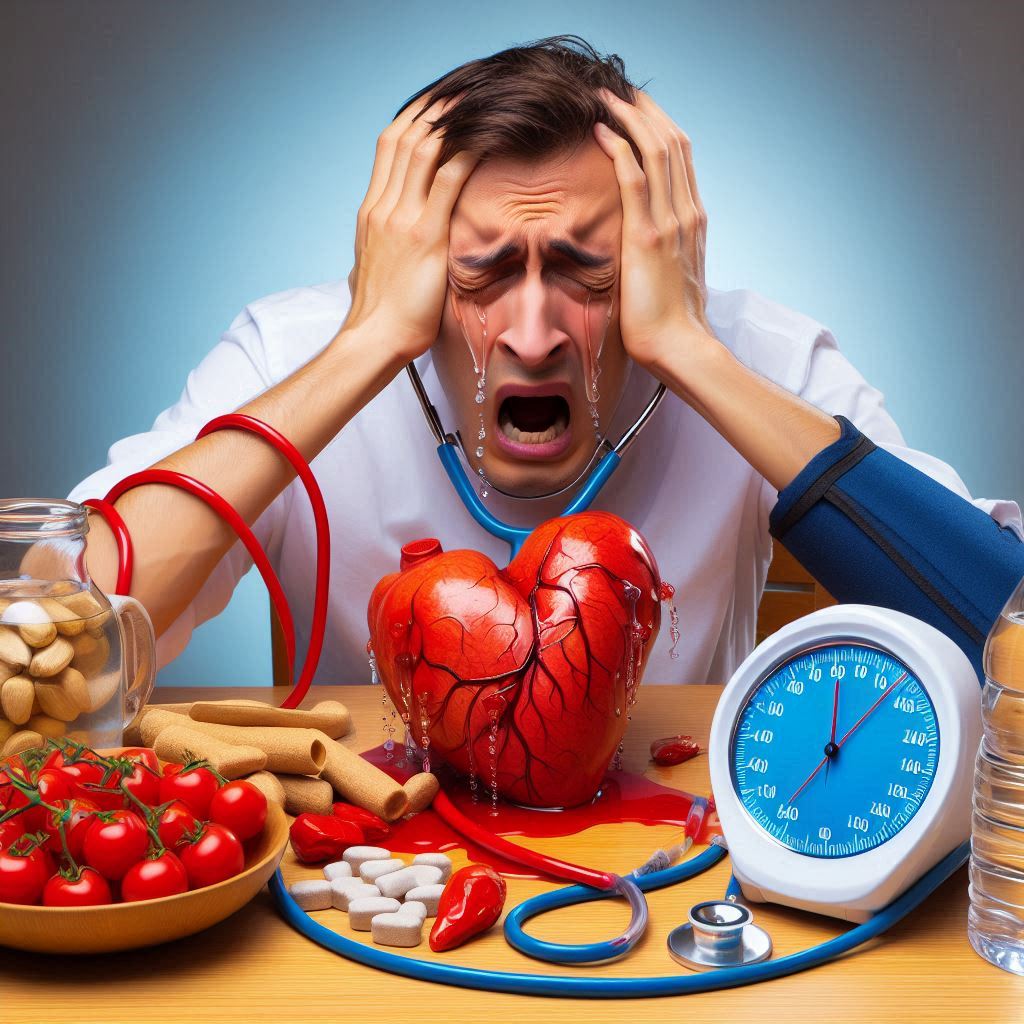Hey there, hydration heroes! It helps the treatment of hypertension and even if you are drinking water can dramatically affect blood pressure. If you have been asking yourself how the concept of drinking water can aid in the proper regulation of your blood pressure, you are at the right site. It’s time to visit the wonderful and sometimes ridiculous world of fluids again and learn what a perfect pair, of dehydration and blood pressure, can be.
What Happens When You’re Dehydrated?


Then, what is dehydration in plain English? In other words, dehydration is the state in which your body loses more of the fluids than it absorbs. This may be caused by sweating, not taking enough water, or certain drugs for instance anticholinergic drugs. Some of the signs of dehydrated individuals are; dry throat and lips, weakness, light head throbbing, and pale or concentrated urine. But how do things or your body react when there is a deficiency of the very important compound H2O?
How Dehydration Affects Blood Pressure


- Dehydration and High Blood Pressure
- When you’re dehydrated, your blood volume decreases. This means there’s less fluid in your bloodstream, making your heart work harder to pump blood, which can lead to dehydration and elevated blood pressure. Imagine trying to water a garden with a half-empty hose – that’s your heart on dehydration!
- How Does Dehydration Affect Blood Pressure and Pulse?
- Dehydration can also cause your pulse to rise. Your heart beats faster to maintain blood flow, which can strain your cardiovascular system. It’s like trying to run a marathon after a night out – not fun!
- High Blood Pressure and Dehydration
- For those already dealing with high blood pressure, dehydration can make the condition worse. The lack of fluids can cause your blood vessels to constrict, further increasing blood pressure.
- Dehydration and Blood Pressure Drop
- On the flip side, dehydration can sometimes cause a drop in blood pressure, especially when moving from lying down to standing up, leading to dizziness and fainting. It’s like the sudden drop you feel on a rollercoaster – unexpected and jarring!
The Science Behind It
Let’s nerd out for a second. So, if you are exposed to a situation of some kind of jeopardy or danger in your life, your body will secrete an anti-diuretic hormone known as vasopressin. This hormone also is used to help your body conserve water and keep the proper balance of fluids in the body. Nevertheless, through the V2 receptors, vasopressin also leads to constriction of your blood vessels a factor that causes high blood pressure. This shows how dehydration alters the blood pressure and heart rate.
Preventing Dehydration
Now that we know the importance of hydration, let’s talk about how to stay hydrated:
- Drink plenty of water: Aim for at least 8 glasses of water a day, more if you’re active or it’s hot outside.
- Eat hydrating foods: Foods like watermelon, cucumbers, and oranges have high water content and help keep you hydrated.
- Monitor your intake of caffeine and alcohol: Both can dehydrate you, so balance them with plenty of water.
- Electrolytes matter: Include drinks or foods that replenish electrolytes, especially if you’re sweating a lot.
Demographics and Data
In the US, dehydration and high blood pressure are significant health concerns. According to the CDC, about 75 million American adults have high blood pressure, and many are at risk due to poor hydration habits. Older adults, in particular, are more susceptible to dehydration due to decreased thirst sensation and medications that increase fluid loss.
Conclusion


Thus, water consumption should not be regarded as a mere tendency but rather a necessity as this research showed the effect of water on maintaining healthy tendency of blood pressure. So next time you feel thirsty, you grab a glass full of water, you are not only satisfying your thirst but you are also protecting your heart. Stay hydrated, stay healthy!



